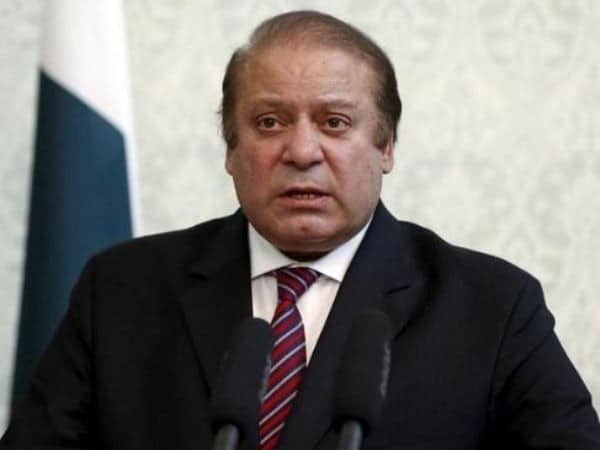Islamabad: The Pakistan Army is said to be ‘extremely upset’ with former Prime Minister Nawaz Sharif’s alleged admission that Pakistan had a significant role to play in the terrorist attacks that took place across Mumbai between November 26 and 29, 2008, which claimed the lives of 166 persons and injured more than 300.
It may be recalled that on Saturday evening, in an interview given to the Dawn newspaper, Sharif suggested terrorists from Pakistan had “crossed the border” to attack Mumbai and added that such terror strikes could have been prevented.
In the interview, Sharif said, “Militant organisations (in Pakistan) are active. Call them non-state actors, should we allow them to cross the border and kill 150 people in Mumbai? Explain it to me. Why can’t we complete the trial?”
Sharif, however, did not name Mumbai attack mastermind Hafiz Saeed or known terrorist outfits Lashkar-e-Taiba, Jamaat-ud-Dawah and Jaish-e-Mohammad that the international community clearly acknowledges as operating from Pakistan soil with impunity in the interview.
Sharif also lamented that Pakistan had isolated itself. He seemed to suggest that Islamabad should look into why its narrative that “it had been fighting terrorism had not been accepted by the international community despite sacrifices”.
Sharif’s statement has, according to sources, left the Pakistan Army extremely worried that “this will give more weight to India’s narrative that Pakistan is not doing enough” to rein in terrorist modules operating from its soil, and particularly from areas in Pakistan-occupied Kashmir (PoK).
According to sources, the top brass of the army is particularly concerned about “Sharif’s statement tilting the balance sufficiently enough to put Pakistan in the blacklist of the Financial Action Task Force (FATF), a Paris-based inter-governmental organisation founded in 1989 on the initiative of the Group of Seven (G-7) nations to develop policies to combat money laundering. Pakistan is already on the grey list for the last three months.
According to sources, Sharif is reportedly under pressure from his ruling Pakistan Muslim League-Nawaz (PML-N) party and the army to retract his statement immediately or issue a clarification. However, there is no indication by the latter that he will do so.
Various media reports are saying that the Pakistan Army is expected to hold a high-level meeting on Monday to discuss what it described as a “recent misleading media statement” about the 2008 Mumbai terror attack.
The spokesman of the Inter-Services Public Relations (ISPR) Major General Asif Ghafoor said in a tweet on Sunday that the National Security Committee (NSC), consisting of Pakistan’s top civil and military leadership, will meet under the chairmanship of Prime Minister Shahid Khaqan Abbasi today to discuss key national issues.
“The NSC meeting suggested to Prime Minister to discuss recent misleading media statement regarding Bombay incident. Being held tomorrow morning,” said Major General Ghafoor in his tweet on Sunday.
New Delhi has long held and accused the Lashkar-e-Taiba of carrying out the attacks in Mumbai in 2008 with the help of ten well-armed terrorists. These attackers arrived on boat from Karachi and according to the Indian government, carried out the violent strikes across Mumbai in coordination with Pakistan’s Inter-Services Intelligence (ISI) agency.
The 26/11 case is being tried in an anti-terrorism court in Pakistan since 2009, but has hardly made any progress.
India maintains that Pakistan has not kept its end of the bargain and sent the case to court without really investigating the conspiracy that led to the attacks.
Islamabad, however, squarely blames New Delhi for not providing it with “solid evidence” against prime accused Hafiz Saeed and others.
“Sharif’s apparently conciliatory remark on the state’s role in terrorism may not result in a concrete shift in Pakistan’s position. (ANI)

